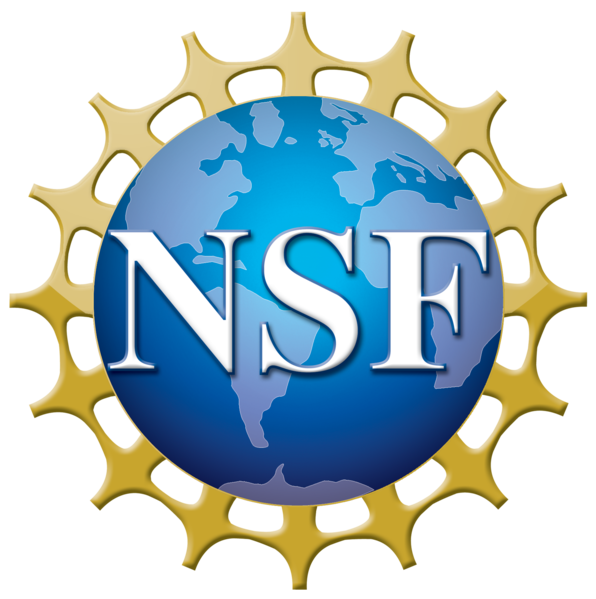CQN Onboarding
CQN is committed to knowing more about our people so that we can better accommodate your needs, interests, and professional development. Please complete this questionnaire, which gives us your contact information and tells us more about you. The DCI Director will ask below if she can share any information with supervisors that will help them understand how you optimally work. She will not share information that hasn’t been approved, but she may contact you personally to ask how CQN can better support you.
Learn more about the center:
General Information about CQN
The mission of the Center for Quantum Networks is to build a quantum internet. More information about our technical goals, research pillars, and Boston and Tucson testbeds can be found throughout the CQN website.
Physical Mailing Address
Center for Quantum Networks
University of Arizona
1630 E University Blvd
Tucson, AZ 85721-0094
The Center for Quantum Networks was funded by NSF grant 1941583. As a Generation 4 ERC, the Center focuses on four foundational components:
- Research
- Engineering Workforce Development
- Diversity and Culture of Inclusion
- The Innovation Ecosystem
The Leadership Team
Saikat Guha: Director saikat@arizona.edu
Dirk Englund: Deputy Director, Boston Testbed lead dirkenglund@gmail.com
Julie Emms: Administrative Director jemms@arizona.edu
Brianna Moreno: Program Coordinator bmoreno@optics.arizona.edu
Brooke Claw: Senior Accountant brookeaclaw@arizona.edu
Stephen Fleming: Innovation Ecosystem Lead stephenfleming@arizona.edu
Julie Des Jardins: Director, Diversity, Culture of Inclusion juliedesjardins@arizona.edu
Don Towsley: Thrust 1 Lead towsley@cs.umass.edu
Liang Jiang: Thrust 2 Lead liang.jiang@uchicago.edu
Marco Loncar: Thrust 3 Lead loncar@g.harvard.edu
Jonathan Ruane: Thrust 4 Lead jruane@mit.edu
Matt Eichenfield: Tucson Testbed Lead eichenfield@arizona.edu
CQN is made up of research groups led by faculty at the following universities:
*CQN Core Institution (at least 3 primary investigators)
Brigham Young University
Professor Ryan Camacho: camacho@byu.edu
*Harvard University
Professor Julia Mundy: mundy@fas.harvard.edu
Professor Marko Loncar: loncar@g.harvard.edu
Professor Mikhail Lukin: lukin@physics.harvard.edu
Howard University
Professor Tina Brower-Thomas: tina.browerthomas@howard.edu
*MIT
Professor Karl Berggren: berggren@mit.edu
Professor Dirk Englund: dirkenglund@gmail.com
Professor Danna Freedman: danna@mit.edu
Northern Arizona University
Professor Ines Montano: Ines.Montano@nau.edu
Professor Stephanie Hurst: stephanie.hurst@nau.edu
*University of Arizona
Professor Boulat Bash: boulat@arizona.edu
Professor Bane Vasic: vasic@ece.arizona.edu
Professor Saikat Guha: saikat@arizona.edu
Professor Narayanan Rengaswamy: narayananr@arizona.edu
Professor Matt Eichenfield: eichenfield@arizona.edu
University of Chicago
Professor Liang Jiang: liang.jiang@uchicago.edu
*University of Massachusetts-Amherst
Professor Don Towsley: towsley@cs.umass.edu
Professor Taqi Raza: taqi@umass.edu
Professor Stefan Krastanov: skrastanov@umass.edu
Professor Filip Rozpedek: frozpedek@umass.edu
University of Oregon
Professor Michael Raymer: raymer@uoregon.edu
Professor Brian Smith: bjsmith@uoregon.edu
University of Southern California
Professor Quntao Zhuang: qzhuang@usc.edu
Yale University
Professor Leandros Tassiulas: leandros.tassiulas@yale.edu
Programs and Activities to Participate in at CQN
There are ways to get involved in the cross-lab, cross-campus, cross-field community of CQN. If you are interested in any of the opportunities below, please contact DCI Director Julie Des Jardins (juliedesjardins@arizona.edu) for more information.
Student Exchanges: CQN would like to sponsor research collaborations across our different campuses and labs. If you see an opportunity for a productive in-person collaboration with another CQN lab, let Julie Des Jardins know so we can try to facilitate that exchange. We welcome students as well as senior researchers and faculty to participate in lab exchanges. (juliedesjardins@arizona.edu)
SLC (Student Leadership Council): The Student Leadership Council consists of 5 elected chair positions: Chair, Vice Chair, Collaboration Officer, Undergraduate Officer, and Innovation Ecosystem Officer. The representatives are elected by the members of the Student and Postdoc Association (SPDA). The SLC oversees Student and Post Doc summer retreat. They also hold a seat on the CQN leadership team.
SPDA (Student and Postdoc Association): Students, grad students, and postdocs are welcome to become a part of the SPDA. Participating in the SPDA is a great way to network with other CQN members, develop leadership and organizational skills for quantum careers, get a sense of the overall work being done at CQN, and just connect with other people throughout the center. If you’re interested in playing an active role in the SPDA, please reach out to Julie Des Jardins.
SLC Summer Retreat: For students and postdocs, the SLC retreat is a fantastic way to learn about CQN technologies across our research pillars, present your research, collaborate with other researchers, network with other quantum researchers in industry and academia, and play a more active role in building the culture of CQN. If you’re interested in attending, Program Coordinator Brianna Moreno (bmoreno@optics.arizona.edu) can help set you up with travel and hotel bookings and reimbursements.
CQN-Wide Annual Retreat: Held in late winter/early spring, this is the chance for all of CQN, including industry partners, to get together to discuss research, collaborate, network, and connect. Talk to your PI if you’re interested in attending, and Brianna Moreno (bmoreno@optics.arizona.edu) can assist you with registration and logistics. As a general policy, CQN will cover travel and hotel expenses for anyone presenting a talk, paper, or poster or collaborating on research at the retreat.
Team Research Entanglement (Thrust 4): Joan Arrow, a quantum researcher who leads the Quantum Ethics Project and also researches in our Social Impacts Thrust, has gathered CQN researchers who want to apply social impacts questions to their technical research for CQN. If you are interested in the social impacts of your technical research, please feel free to reach out to Julie Des Jardins or Joan Arrow (joan@quatumethicsproject.org) to see how you can be a part of this committee’s work. We’d love to have you.
Global Affairs Discussion Group: Similar to the committee above, our Global Affairs Discussion Group is for any CQN member who wants to talk about the impact of social, economic, or geopolitical events on our work developing quantum networks, including policy as it relates to the National Quantum Initiative. Although this group has not formed formally yet, we would like for any researchers (students, senior researchers, faculty) and staff who are interested in these matters to join us in these conversations. We plan to announce a regular cadence for meeting in 2024 and will announce meetings in the newsletter and on the website. We also welcome you to reach out to Julie Des Jardins if you’re interested in attending or would like to put a certain topic on the table for discussion. (juliedesjardins@arizona.edu)
Mentorship Program: This is a program we plan to get up and running in 2024. If you are a student, researcher, industrial partner or faculty member who is interested in fostering a mentoring relationship across campuses, labs, or institutions, please contact DCI Director Julie Des Jardins (juliedesjardins@arizona.edu). We welcome participants in our mentoring program who are enthused about mentorship with people who might be of genders, races, ethnicities, or cultural backgrounds that differ from theirs.
REU Program (as a student/faculty sponsor): REU stands for Research Experience for Undergraduates. It is an NSF-funded summer research program in which undergraduate students are immersed in CQN-related research in a lab of CQN faculty. CQN requires applicants to belong to group/s underrepresented in STEM who would be experiencing a lab internship for the first time. These are funded research opportunities for students willing to travel and board at campuses that participate in CQN research. Contact Julie Des Jardins if you want to know more about participating in the REU program. (juliedesjardins@arizona.edu)
Quantum Que is a program in which Pima Community College students interested in STEM and quantum fields transfer to the University of Arizona and are encouraged to continue pursuing quantum fields. Regardless of whether you’re in Arizona, we welcome any CQN members who are interested in mentoring students in Quantum Que. Please reach out to Julie Des Jardins if you are. (juliedesjardins@arizona.edu)
Arizona Quantum Initiative (AQuI): The University of Arizona is focused on building Arizona as a world leader in quantum information science and engineering (QISE), drawing across disciplines at The University of Arizona from Optical Sciences, the College of Engineering, the Colleges of Science, Math, Law, and Computer Science. Leaning into the University’s HSI designation, “aquí” means “here” in Spanish. Here, in the Sonoran Desert, the University of Arizona is accelerating a new world of applications built on quantum technology. Our mission is to deliver quality education, cutting-edge research, and effective partnerships, attracting talent and investment to quantum technology development in Arizona. Faculty participate in its programs, and graduate students at the University of Arizona have taken a leadership role in AQuI by heading a committee that plans educational talks and events for students who are quantum curious. If you would like to participate please contact Julie Emms (jemms@arizona.edu).
Affinity Groups in CQN: CQN does not currently have affinity groups, but we are happy to sponsor them. If you are interested in forming an affinity group within CQN (along lines of gender awareness/advocacy, race awareness/advocacy, disability awareness/advocacy, LGBTQ+ celebration/advocacy, veteran status, mental health, common interests or hobbies, other advocacy, art, pop culture etc.), please let us know. We can put out a general call for interested people and help get a group set up and running across campuses. Contact Julie Des Jardins (juliedesjardins@arizona.edu).
CQN Winter School: Held in January, Winter School provides tutorials at all levels on quantum networking topics that are new to participants, for CQN students, postdocs, faculty, CQN industry partners, other outside qualified persons (including students at non-CQN schools), and industry and government scientists. Each course is co-developed and taught by two people—a lead instructor and a co-instructor who is usually a grad student or postdoc. This arrangement is based on a program first developed by Michael Raymer and Judith Eisen (The Science Literacy Program at University of Oregon, https://scilit.uoregon.edu). It has two purposes: to mentor students who wish to learn best practices in teaching under the mentorship of an experienced instructor, and to improve the quality of the short course by adopting best practices in inquiry-based teaching with the active participation of the co-instructor.
We welcome any members of CQN to attend the virtual sessions and to encourage others who might be interested to attend as well. We also encourage CQN researchers and faculty to participate as educators on various quantum networking topics. If interested in being a part of Winter School, contact Professor Michael Raymer: (raymer@uoregon.edu)
MS-QISE: Laying the foundation to serve as a national model in QISE education, the MS QISE at the University of Arizona, Wyant College of Optical Sciences is designed to meet industry’s growing need for a transdisciplinary workforce with expertise in Quantum Information Science and Engineering (QISE). Providing students with theoretical and hands-on experience with an array of quantum equipment, spanning the fields of engineering, computer science, physics and math, while exposing the student to the social, ethical, and legal implications of QI technology, the curriculum combines tailored courses in quantum mechanics, information theory, computer science, optics and materials, algorithms, and communications system engineering, as well as laboratory and experiential courses addressing the social, ethical, and legal implications of QI technology. If you are interested in knowing more about this program, please reach out to Julie Emms (jemms@arizona.edu).
DCI OFFICE HOURS:
We cannot improve or maintain diversity and a culture of inclusion at CQN if we don’t hear feedback on what we’re doing right and what we can do better. We value hearing about your experience and thoughts about the culture of CQN.
DCI Director Julie Des Jardins welcomes feedback and is happy to talk about your experience in CQN. She is available for live office hours at The University of Arizona, Wyant College of Optical Sciences and virtually for CQN members on other campuses every Tuesday (11-12 pm Arizona time) and Wednesday (11:30-1 pm Arizona time). To set up a private meeting, please email Julie at juliedesjardins@arizona.edu. Everything is confidential.
The zoom link for Tuesday and Wednesday office hours is here.

